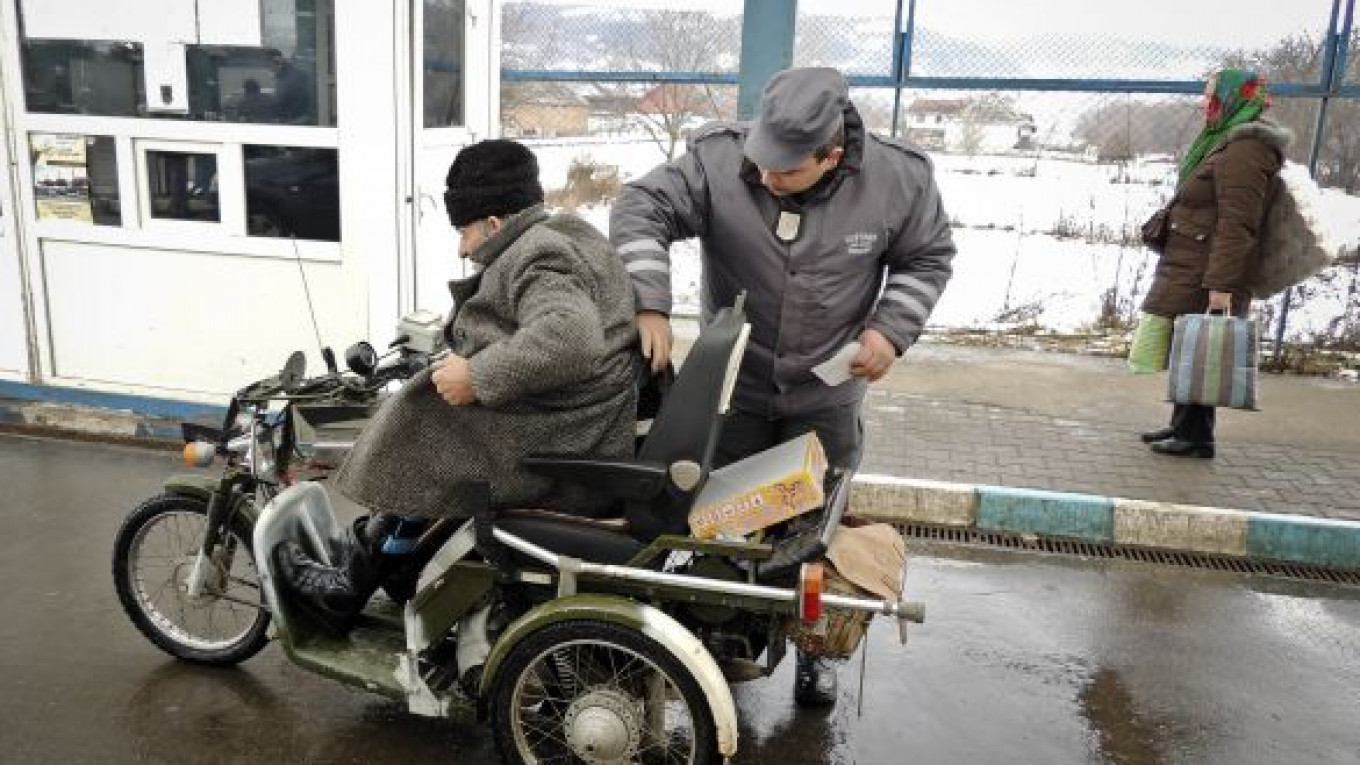HALMEU, Romania — Armed with state-of-the-art sensors and surveillance cameras, authorities in Romania say they are gaining the upper hand against rampant cigarette smuggling along the country’s porous border with Ukraine.
Ukraine, to the north, is a hotbed of smugglers seeking to profit from vastly higher prices on the other side of the rugged border. A pack of cigarettes rolled in makeshift workshops can sell for as little as half a euro — and the price immediately doubles over the northern Transylvania and gets dramatically higher the closer they get to western capitals.
Some 9.7 million packs of cigarettes were confiscated in 2012 by police, who say they have busted 30 organized gangs. The patrols also stopped more than 130 individual smugglers and recovered 268 stolen cars and vans.
The turning point in the daily battle — waged in diverse terrain ranging from steppe to rugged mountains — came in July when EU funds totaling about 2 million euros ($2.66 million) were invested in seismic sensors able to detect footsteps, surveillance cameras and other equipment.
Some 9 million euros of cigarettes alone have since been confiscated, officials say.
“We used to patrol through extreme weather, through cold and through rain, but the new technology makes our work much easier and the traffic has visibly decreased,” chief agent Olimpiu Breton said. He says the X-ray systems, known as Robo-Scan, are working night and day and can detect whatever may be stashed inside passing trucks.
Video recordings showed officials intercepting an oil tanker filled with contraband cigarettes.
After Romania became an EU member in 2007, life in the quiet northernmost region some 650 kilometers north of Bucharest changed dramatically.
Many people went to work abroad; those who remained had little option but to seek easy money. The 1,600 kilometers of border make Romania the European state with the longest external frontier. Through it comes not just smuggled cigarettes, but also drugs, cars and human trafficking. The smuggling has also been rampant in other Balkan countries, as a result of the wars of the 1990s.
Struggling uphill alongside his horse, woodcutter Ionut Opris sighed at the thought of what until recently had been a crime zone: “Smugglers are Romania’s biggest thieves! We work hard, in the forest, in rain and cold, for less than 150 euros a month and pay taxes, while these guys, with their cigarettes, do nothing but steal.”
Related articles:
A Message from The Moscow Times:
Dear readers,
We are facing unprecedented challenges. Russia's Prosecutor General's Office has designated The Moscow Times as an "undesirable" organization, criminalizing our work and putting our staff at risk of prosecution. This follows our earlier unjust labeling as a "foreign agent."
These actions are direct attempts to silence independent journalism in Russia. The authorities claim our work "discredits the decisions of the Russian leadership." We see things differently: we strive to provide accurate, unbiased reporting on Russia.
We, the journalists of The Moscow Times, refuse to be silenced. But to continue our work, we need your help.
Your support, no matter how small, makes a world of difference. If you can, please support us monthly starting from just $2. It's quick to set up, and every contribution makes a significant impact.
By supporting The Moscow Times, you're defending open, independent journalism in the face of repression. Thank you for standing with us.
Remind me later.






